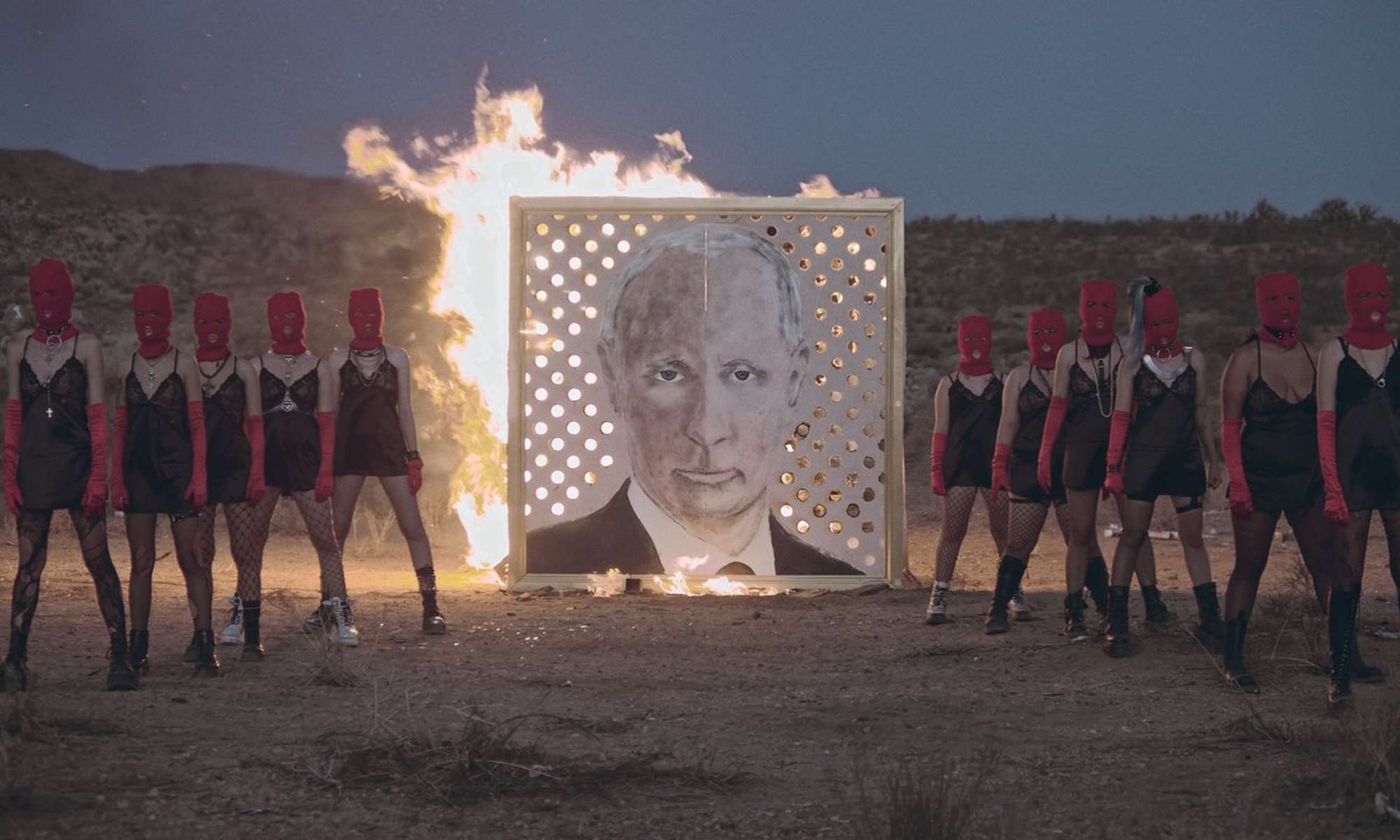Here’s a scene where Joseph Christian Jukic (JCJ) has a symbolic moment with Nadya from Pussy Riot, blending sharp commentary on modern values with a touch of drama:
INT. COFFEE SHOP – NIGHT
The conversation between JCJ and Nadya has taken a reflective turn. The warm hum of the coffee shop fades as JCJ reaches into his pocket, pulling out a worn, autographed one-dollar bill. He places it gently on the table between them, its faded ink catching the dim light.
JCJ
(leaning back, his tone somber)
There it is, Nadya. The Son of God dollar.
NADYA
(frowning, picking it up carefully)
What are you talking about?
JCJ
(his voice steady, almost mournful)
That’s the god of the people these days—money, mammon, the golden calf reborn. We don’t worship ideals anymore. We don’t worship justice, freedom, or truth. We worship this.
Nadya stares at the dollar bill, her expression unreadable. The autograph on it is barely legible, but she can make out a name: “In God We Trust” is ironically bold above the signature.
NADYA
(smirking, but with an edge)
The irony isn’t lost on me. “In God We Trust” printed on the very thing that people use to betray their neighbors, their values, their souls.
JCJ
(nodding)
Exactly. It’s the golden calf all over again. The same story, just with a different idol. Back then, it was a statue. Today, it’s this little piece of paper.
NADYA
(placing the bill back on the table, her tone sharp)
And yet, we need it to survive. To eat, to live, to fight. How do you reconcile that?
JCJ
(sighing, folding his hands)
You don’t. You can’t. But you can refuse to let it rule you. The moment we put money above people, above principles, we lose.
NADYA
(leaning forward, her eyes narrowing)
And what about those who already have all the money, who use it to control everything? What do we do about them?
JCJ
(smiling faintly)
We remind them of something they’ve forgotten—that money is just paper. Power is in the people, not the currency.
He picks up the dollar bill and holds it up, the light catching its edges.
JCJ
(with quiet intensity)
This isn’t the Son of God. This isn’t salvation. It’s a tool, nothing more. And tools can be broken, replaced, or used for good—if we choose.
Nadya watches him, her expression softening. She reaches into her bag and pulls out a small pin with the Pussy Riot logo, sliding it across the table.
NADYA
(grinning)
Consider this my contribution to the revolution.
JCJ laughs, tucking the dollar bill back into his pocket and pinning the badge onto his jacket. The two share a moment of mutual respect, a silent agreement to fight the golden calf in their own ways.
JCJ
(raising his coffee cup)
To breaking idols.
NADYA
(clinking her cup against his)
And building something better.



